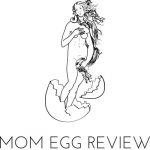About Mom Egg Review
MER editor Marjorie Tesser interviewed by Columbia University student Katherine Mullan.
MOM EGG REVIEW is an annual collection of poetry, fiction, creative prose, and art that publishes work by and about mothers and motherhood. Celebrated writers and new talents explore the experience of motherhood from diverse perspectives and examine the nexus of motherhood with other identities, cultural and personal. Multi-ethnic and multi-generational, MOM EGG REVIEW tells important stories ignored or marginalized by other publications, and nurtures exciting literary talents.
Mom Egg Review’s mission is to put fine literary work with diverse perspectives of mothers and motherhood in the forefront of contemporary literature and discourse, and to promote and celebrate the creative force of mother artists and nurture community through publications, media, performances, and workshops.
Why did you start The Mom Egg?
The Mom Egg was originally started by Joy Rose as part of her Mamapalooza Festival, an annual celebration of creative mothers. At that time, a lot of the participants were mom rockers (Joy was a member of the band Housewives on Prozac) and the first couple of The Mom Eggs, a few photocopied pages stapled together, contained as many song lyrics as poems. Alana Ruben Free was founding editor; I joined as co-editor in 2006, and have been Editor in Chief since 2009. The Mom Egg evolved to an independent literary journal at that time. The name was amended to Mom Egg Review last year, to emphasize our mission as primarily literary. We just published our twelfth annual issue.
How do you recruit contributors?
Most of what we publish is selected from work sent to us through our annual call for submissions, which we publicize on various creative writing blogs, listings and periodicals, and through our newsletter, Facebook page and website. We receive submissions from all over the world. The editor in chief and a small group of editorial assistants read every piece submitted and we select the most extraordinary work from that pool. A small number of pieces, maybe 5%, are solicited, usually from very established writers.
Do you have inclusion or exclusion criteria?
We publish work “by mothers about everything, and by everyone about mothers and motherhood.” “By mothers about everything” because we are interested in the ways motherhood informs other, sometimes seemingly unrelated issues. “By everyone about mothers and motherhood,” because we are interested in the mothering relationship from diverse perspectives, including external. Additional requirements (formatting, length, submission procedures) are posted on our website when submissions open, June 1-Sept.1.
Do you think creative expression is particularly relevant to motherhood? If so, how or why?
Most people who become mothers learn to be creative in one way or another, from sheer self-preservation—the role requires endless improvisation! This is especially true of people who are artists, who tend not only to experience things but also to process them in ways that can be made tangible. Motherhood is so rich, emotionally, intellectually, physically and experientially, that it provides a deep vein from which to source creative work, and extraordinary work results. But it is also demanding. Creative work allows a mother to replenish her own sense of self, when she is involved in unceasing endeavor that requires, so often, selflessness. We help to nurture mother artists because their job(s) are so demanding and personal time, including creative time, is at such a premium, and because their insights so valuable to literature and to humankind.
Is there anything else that you feel is important about your project that you want to share?
Mom Egg Review presents important—and enjoyable—literature and art. The pieces we include are not just intelligent and well observed; they are characterized by beauty of expression, precision, music, and the elusive resonance of inspired and finely crafted art. They reflect diverse, sometimes conflicting perspectives. They provide readers with food for thought, laughs, empathy, shock, and inspiration; they provide society with insights into the perspectives and priorities of a huge portion of the population whose needs, goals and desires are often discounted.

